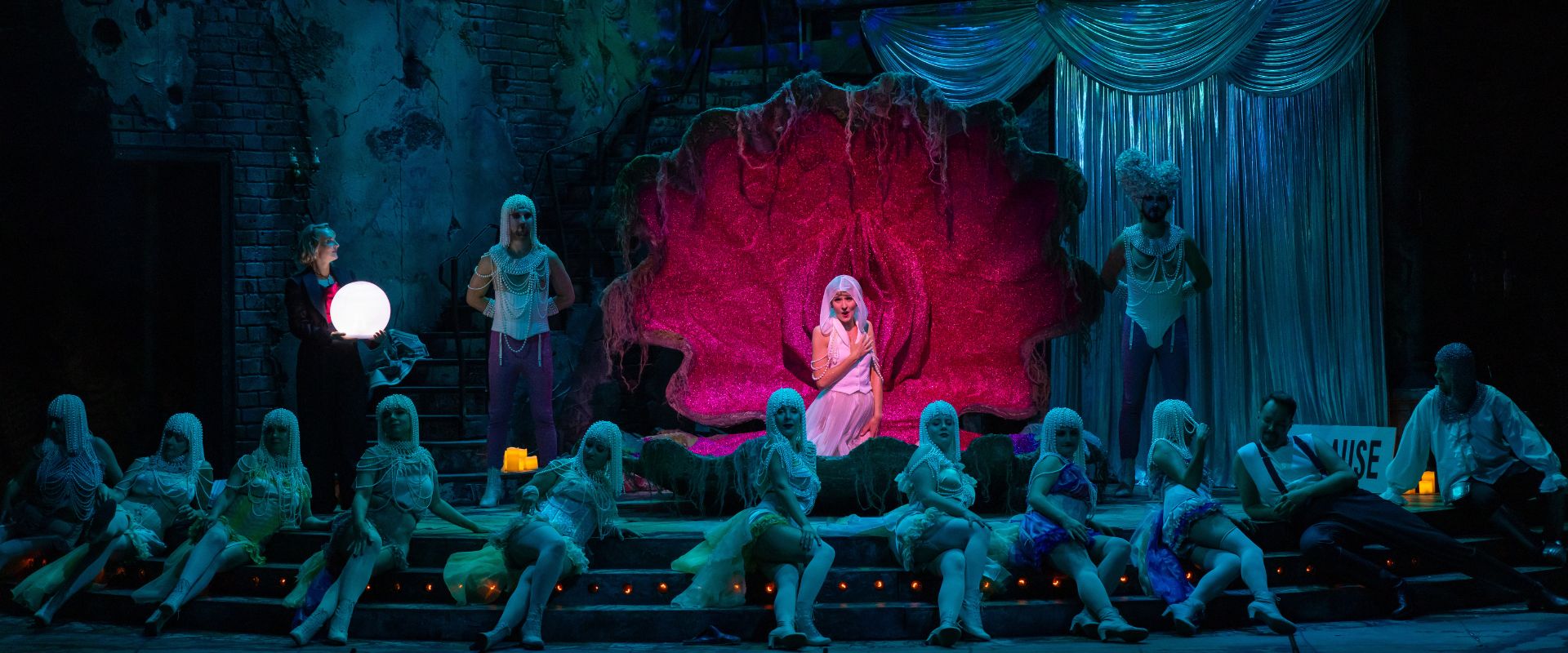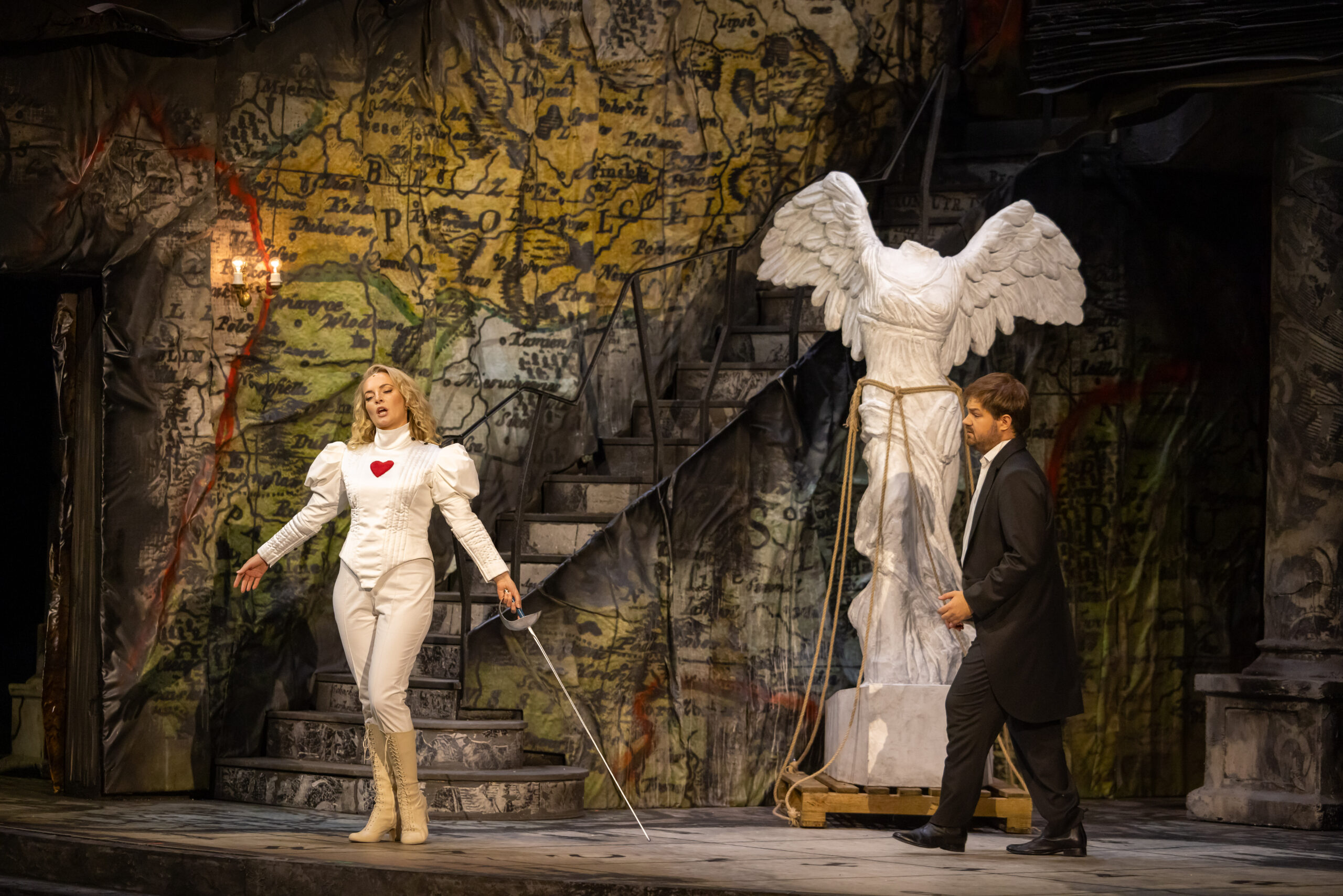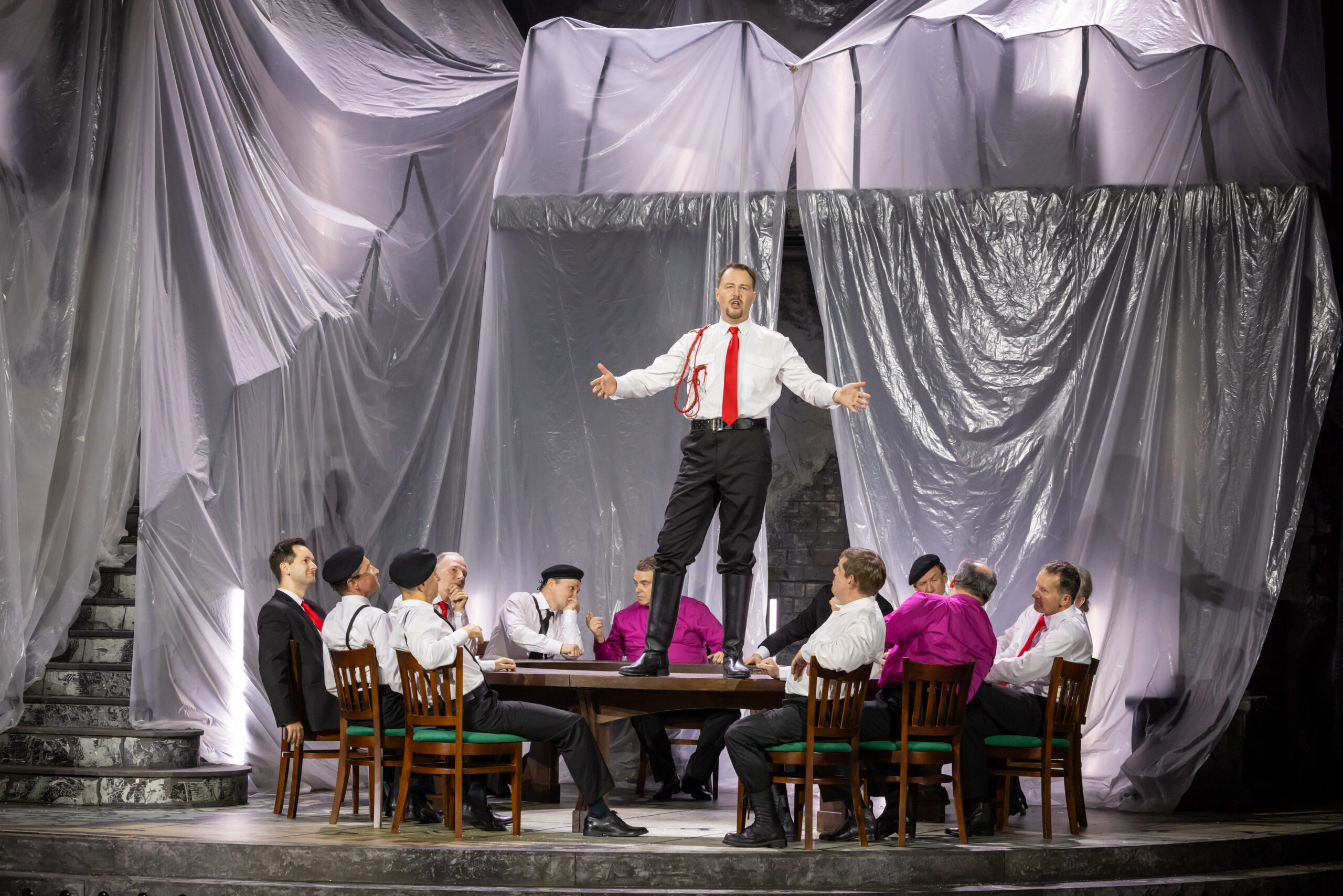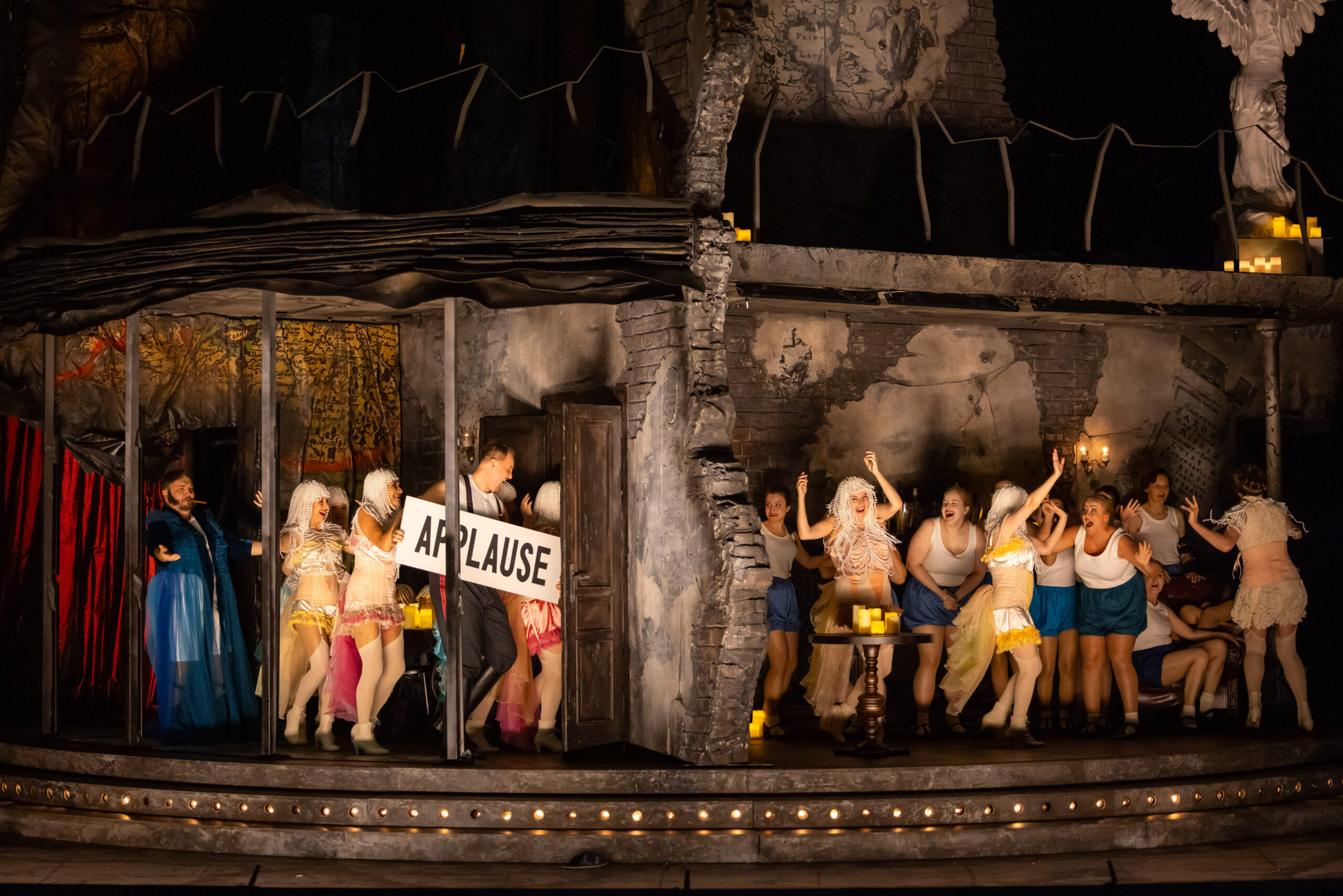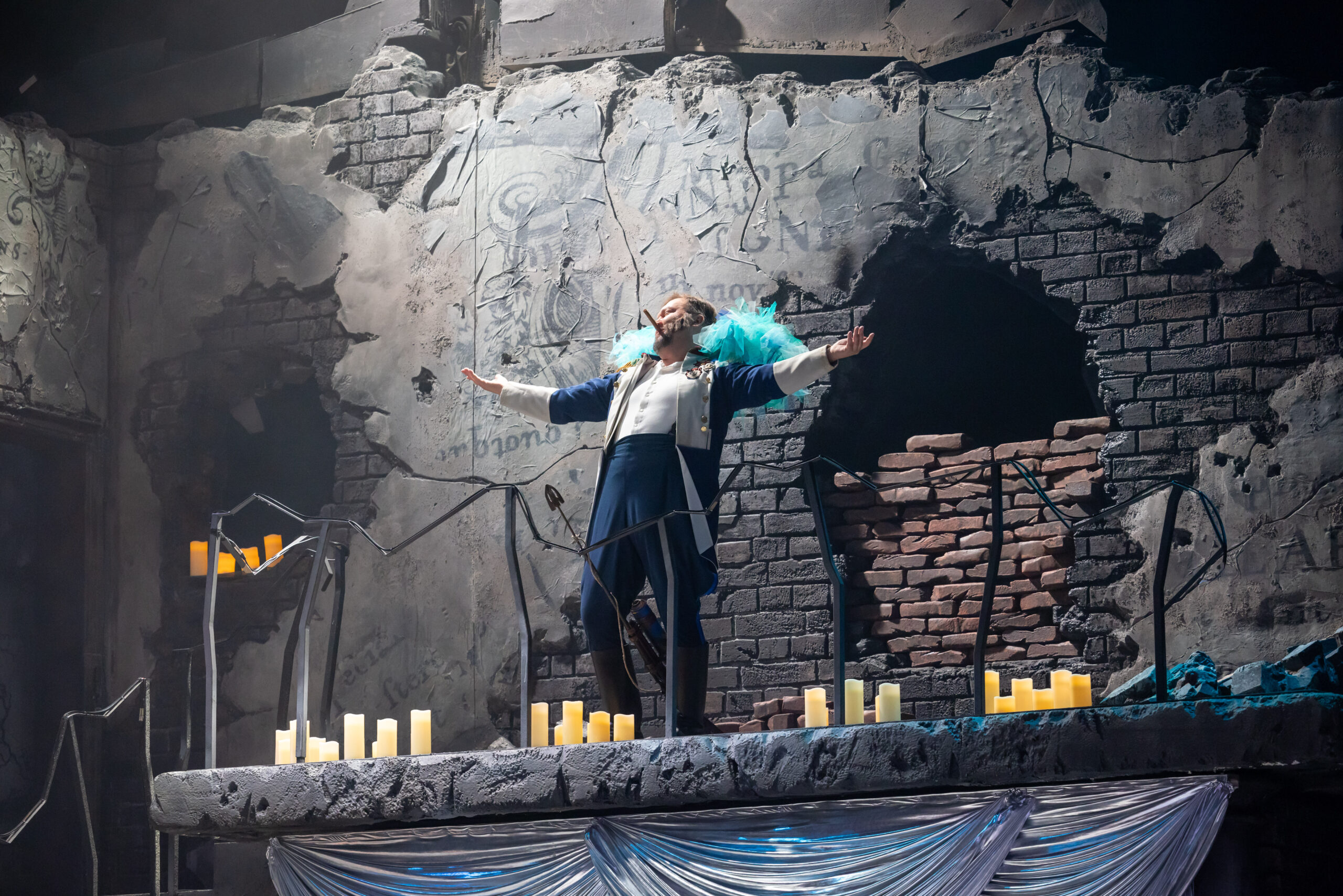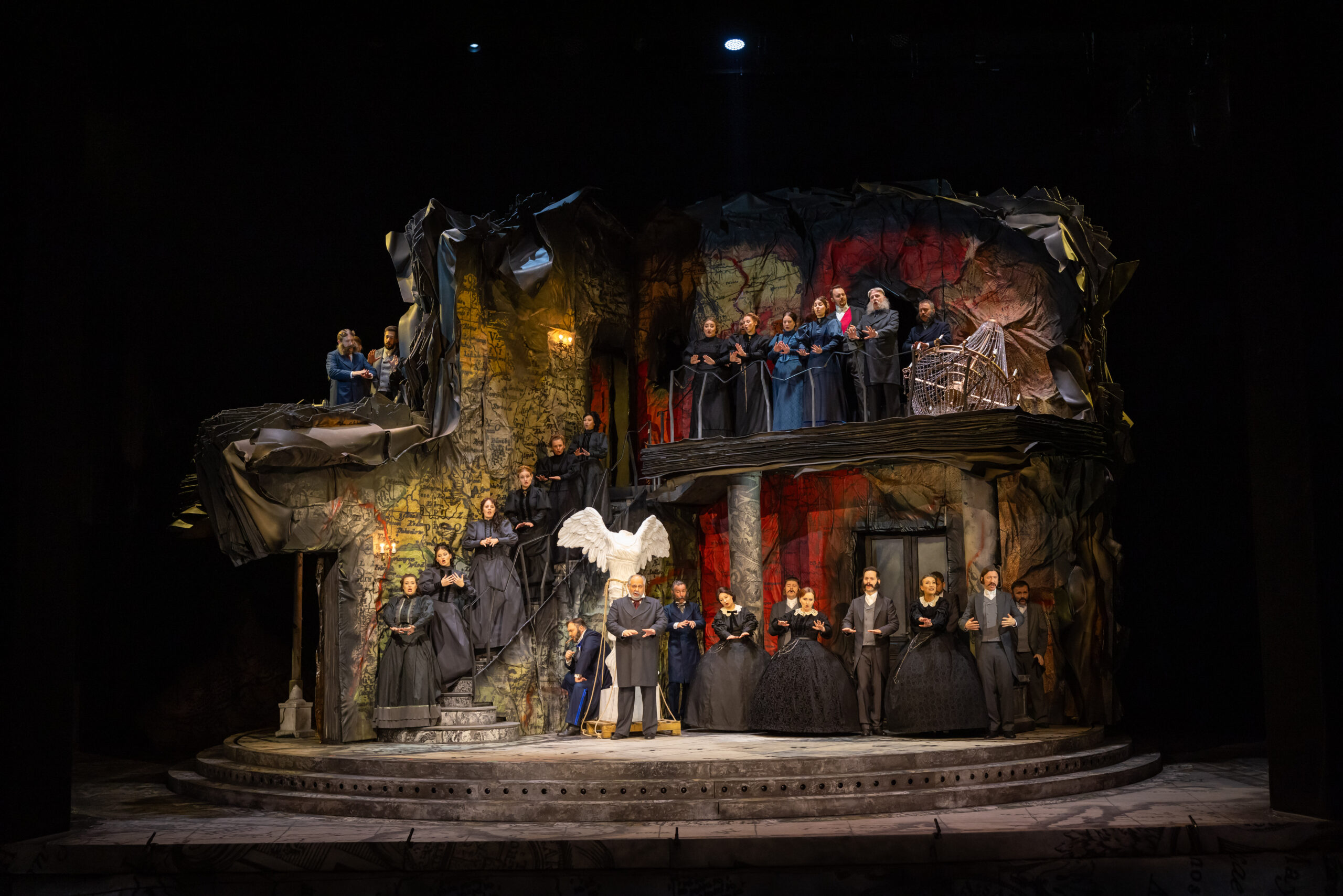 Poznań’s Grand Theatre breathes new life into Moniuszko’s “The Countess”
Poznań’s Grand Theatre breathes new life into Moniuszko’s “The Countess”
I must admit, I was quick to ignore the news of the Poznań premiere of “The Countess.” Even with Karolina Sofulak at the helm – a director whose work I have always admired – I figured it would be just another tired Moniuszko opera. A few months later – the day after the premiere, to be precise – social media exploded with enthusiastic reactions. I had no choice: the following day I set off for Poznań to see the third performance in a row. And it was worth every minute.
I always enjoy attending performances at the Grand Theatre in Poznań. The proportions between stage and auditorium (858 seats) feel just right: no seat is too far from the action, and the visibility is excellent. Perhaps the orchestra pit is a bit too deep – from the stalls one can’t easily watch the conductor. The building itself is a monumental, neoclassical structure with a six-column portico topped by Pegasus. It was built relatively late – between 1909 and 1910 – as the Stadttheater Posen, designed by Max Littmann, a Bavarian architect known for his famous theatres in Munich and Gießen. The grand opening took place on 31 August 1910 with a performance of Mozart’s “The Magic Flute.” The theatre was meant as a symbol of Prussian culture in Germanised Poznań. Yet history played a twist, and after Poland regained independence in 1919, the building was taken over by the Polish Society of Friends of the Opera. In 1949, Stanisław Moniuszko became the patron of the Poznań Opera. Thus, a building erected to celebrate the German spirit became one of the most important venues of Polish musical culture.
Above the main entrance soars the renowned Pegasus – a symbol of art and inspiration – masterfully sculpted by Symon Rychłowski. “Once you’ve sung here, this theater will never let you go,” the staff like to say. Few realize that the Grand Theatre possesses one of the largest opera stages in Poland. It is also said to harbor its own spirit – the opera diva Antonina Kawecka, whose figure is rumored to appear in the windows at night.
“The Countess” is Sofulak’s fourth production for the Poznań Opera, following “Faust” (2019), “Albert Herring” (2022), and “Rusalka” (2022), the last of which was presented in the hall of the Poznań International Fair. I greatly admire Renata Borowska-Juszczyńska, the theatre’s director, for spotting Sofulak’s talent several years ago during an international competition for young opera directors in Linz, where Sofulak won first prize. Since then, her career has accelerated rapidly. She has directed more than a dozen productions in Poland and abroad, but her collaboration with Poznań remains the most consistent. Kudos to the management for investing in young artists – clearly, this approach benefits both sides.
Wyświetl ten post na Instagramie
From the very first scenes, it is evident that Sofulak finally received a proper production budget. Dorota Karolczak’s main set was built on a revolving stage, with multiple levels and parallel actions unfolding simultaneously – a device that adds dynamism and visual appeal. The director conceived each of the three acts as taking place in a different era: the first in the 19th century, the second in the interwar period, and the third in the 1980s – during Poland’s time of transformation. The concept recalls Grzegorz Jarzyna’s solution in “Magnetism of the Heart” (TR Warszawa, 1999). The costumes, designed by Ilona Binarsch, evolve accordingly – from traditional noble attire to nearly contemporary fashion.
Sofulak emphasizes the autonomy of the title character, portraying her as a self-aware woman who knows what she wants from life. In this interpretation, she diverges markedly from the submissive prototype envisioned by librettist Włodzimierz Wolski and composer Moniuszko. This Countess is fierce – her temperament, emotions and desires break free from the conventions of her time. She is flesh and blood, closer to the modern women who have fought for centuries for their place and their right to speak.
The production’s subtitle – “The Dream of an Independent Poland (and Polish Woman)” – signals a broader reflection on “Polish identity,” returning to familiar themes of freedom, pride, independence and the ongoing gender struggle that finally tips toward female autonomy. The creators also dared to approach Moniuszko’s music without undue reverence. They trimmed obsolete fragments to keep the pacing taut and focus the audience’s attention on the essence of the drama.
Both in staging and performance, everyone plays with convention – mixing nostalgia with irony, the grotesque with seriousness. Everything feels cohesive and thoughtful, not in opposition to Moniuszko but in dialogue with him. The result is Moniuszko rejuvenated – free of excessive patriotic pomposity, not as a historical tableau but as a story of a Poland one might wish for: more open, more self-aware. For Sofulak’s Countess, the dream is not of a suitor but of a country that will finally move beyond provincialism.
The cast was excellent. Most notably Aleksandra Orłowska, a singer for whom I have long held artistic admiration, tackled the title role with bravura. She was uncompromising as an actor and superb vocally; her aria “Awakening from Illusive Dreams” in Act III brought the audience to their feet. As Kazimierz, Łukasz Załęski gave a noble performance – his career continues to grow steadily, and his warm-toned tenor suited the role perfectly. Wojtek Gierlach as Podczaszyc confirmed his artistry: his bass resonated powerfully across the range and the role was delivered with great intelligence.
Rafał Żurek also gave a convincing performance – his tenor may not yet have great volume, but it is promising and distinguished by a natural vis comica. Magdalena Pluta, Małgorzata Olejniczak-Worobiej and Rafał Korpik were equally effective. The chorus deserves great praise for its stage energy, beautiful tone and even blend. It was a true pleasure to listen – and to watch.
Katarzyna Tomala-Jedynak conducted with sensitivity, though she began somewhat cautiously. The overture felt restrained, but as the evening progressed, the music gained vitality and momentum. Monika Myśliwiec’s choreography, Giuseppe di Iorio’s masterful lighting (perfectly highlighting sets and costumes), and Karolina Fender Noińska’s (Jajkofilm) video projections, shown on the curtain during the overture, all contributed to a cohesive and engaging visual world. The choir’s preparation under Mariusz Otto was exemplary. The scenic inventiveness and visual coherence of this production are truly impressive. My only complaint: the two long intermissions disrupted the dramatic flow – each act had to rebuild its energy anew. Given the meticulous structure of the performance, more concise pacing would have been preferable.
I had never seen “The Countess” before. I knew a few arias but had never been drawn to attend a full production. Perhaps that was for the best, as previous stagings in Poland were generally disappointing. In Sofulak’s interpretation, however, Moniuszko’s opera has been given new life – and perhaps this version will inspire other theatre directors to bring it back to the stage.
Things to know before visiting the Grand Theatre in Poznań:
- Travel: Poznań is very well connected – you can arrive by plane, train, or bus.
- Performance: There are two long intermissions – a good opportunity to visit one of the theatre’s buffets for a snack.
- Accommodation: If your visit coincides with a trade fair (frequent in Poznań), finding a hotel room may be harder than getting an opera ticket.
- Programme: 30 PLN
- Wine at the buffet: 20 PLN
- Surtitles: Displayed on both sides of the stage in Polish and English.
- Streaming: The production of “The Countess” is available free of charge on OperaVision.




